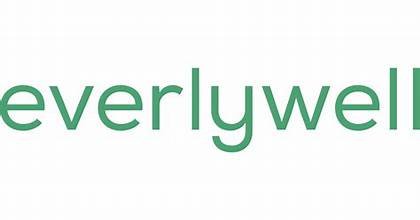
Selenium: The Trace Mineral That Quietly Supports Thyroid, Immune, and Hormone Health
Selenium: The Trace Mineral That Quietly Supports Thyroid, Immune, and Hormone Health THIS POST MAY CONTAIN AFFILIATE LINKS Selenium doesn’t get a lot of attention
Have you ever looked at your thyroid labs and thought, “Everything looks normal… so why do I still feel awful?”
That question comes up more than you’d think.
Fatigue, weight gain, brain fog, hair loss — all the classic thyroid symptoms — yet your TSH, Free T4, and Free T3 are sitting neatly in range.
The missing piece for so many women is something most providers never test: Reverse T3 (rT3).
Reverse T3 is your body’s way of saying, “Hey, I’m overwhelmed — slow down.”
It’s not a thyroid failure; it’s a survival strategy. Your body makes it when life feels too demanding, energy is scarce, or stress hormones are running the show.
Let’s talk about what that really means, how it connects to your Free T3 and Free T4, and what your body might be trying to tell you.
Your thyroid makes two main hormones: T4 (thyroxine) and T3 (triiodothyronine).
T4 is the storage form — it’s inactive.
T3 is the active form — it’s what actually energizes your cells and keeps your metabolism running.
When everything’s balanced, your body converts T4 → T3 as needed.
But sometimes, under stress or illness, your body converts T4 → Reverse T3 (rT3) instead.
Think of it like your thyroid’s built-in brake pedal.
Reverse T3 looks almost identical to T3 but doesn’t do anything — it actually blocks T3 from working.
Your body does this intentionally. If it senses danger — physical, emotional, or metabolic — it slows metabolism to conserve energy. Short term, that’s smart. Long term, it can leave you feeling exhausted, foggy, and stuck.
When your rT3 is high, even if your TSH, Free T4, and Free T3 look “normal,” your cells might not be getting enough active thyroid hormone.
That’s what we call “cellular hypothyroidism” — your body is technically producing hormones, but your cells can’t use them effectively.
Common signs include:
Low energy and sluggish metabolism
Brain fog and forgetfulness
Cold hands and feet
Weight gain that doesn’t make sense
Hair thinning or brittle nails
Feeling wired but tired — like your brain can’t shut off, even when you’re exhausted
It’s your body’s way of saying, “I’m running on survival mode — please give me a break.”
Here’s how to make sense of your Reverse T3 results (ranges can vary by lab):
| Test | Optimal Range | What It Means |
|---|---|---|
| Reverse T3 (rT3) | 8–25 ng/dL | Higher levels (>25) can indicate slowed thyroid conversion or stress response |
| Free T3 / Reverse T3 Ratio | >20:1 (optimal) | A low ratio suggests that more T4 is being converted into inactive rT3 instead of active T3 |
⚠️ Note: Ranges can vary by lab. Always interpret your results in context — especially if you’re under stress, recovering from illness, or navigating hormonal changes.
Your thyroid hormones work like a smart energy economy:
T4 (Thyroxine): The storage form made by your thyroid gland.
T3 (Triiodothyronine): The active form converted from T4 — it fuels your metabolism, focus, and mood.
Reverse T3 (rT3): The inactive form that slows your metabolism when your body needs to conserve energy.
When your body is under chronic stress — emotional, physical, or metabolic — it begins converting more T4 into Reverse T3 instead of Free T3.
It’s like your body putting itself in “energy-saving mode.” Useful for emergencies, not ideal for everyday life.
There’s a reason rT3 gets elevated so easily — it’s incredibly sensitive to stress and nutrient balance.
Some of the most common triggers include:
Chronic stress & high cortisol
Calorie or carb restriction
Inflammation or infection
Low iron or ferritin (needed for thyroid enzyme function)
Low selenium or zinc (for T4 → T3 conversion)
Liver dysfunction (where most conversion happens)
Sleep deprivation or overtraining
Certain medications (steroids, beta-blockers, antidepressants)
This is why someone can eat “clean,” take thyroid medication, and still feel off — if your body’s stressed, it’s not converting properly.
Balancing Reverse T3 isn’t about forcing your thyroid to work harder — it’s about helping your body feel safe enough to let go of the brakes.
Simple shifts make a big difference:
Eat enough: Chronic under-eating slows conversion. Your thyroid needs consistent energy to function.
Focus on recovery: Deep sleep and rest lower cortisol and improve hormone balance.
Support your liver: Hydration, cruciferous veggies, and reduced alcohol help with T4 → T3 conversion.
Manage stress: Mindfulness, journaling, and simple breathing can calm your HPA axis.
Check key nutrients: Iron, selenium, zinc, and magnesium all support thyroid function.
Add movement (not punishment): Gentle, consistent exercise improves metabolic efficiency without triggering cortisol overload.
Remember — your thyroid can’t heal if your body doesn’t feel safe.

Join me on my journey to a healthier lifestyle
You can check your Reverse T3 levels (and related thyroid hormones) without waiting for an appointment:

Offers Reverse T3 Tests and full Thyroid Panels including TSH, Free T4, Free T3, and rT3.
Includes Reverse T3 in its Thyroid + Stress Panel, offering a deeper look at stress-related thyroid changes.

At-home Thyroid Test Kit measuring TSH, Free T4, and Free T3 — ideal for tracking your baseline.
Affiliate Disclaimer: Some of the links above are affiliate links, meaning I may earn a small commission if you purchase through them—at no extra cost to you. I only share lab options I genuinely trust and would recommend to my own patients, friends, and family.
If your Reverse T3 is high, it doesn’t mean your thyroid is broken — it means your body’s protecting you.
✨ Grab my free Sustainable Habits Guide to support your stress response and recovery.
✨ Download the What Spikes Me? Workbook to see how food, sleep, and stress shape your hormones.
✨ Book a free 60-minute consultation — we’ll walk through your thyroid labs together and create a realistic plan that helps you feel like you again.
American Thyroid Association: Understanding Thyroid Hormones
National Library of Medicine: Reverse Triiodothyronine Overview
Mayo Clinic: Thyroid Function Tests

Selenium: The Trace Mineral That Quietly Supports Thyroid, Immune, and Hormone Health THIS POST MAY CONTAIN AFFILIATE LINKS Selenium doesn’t get a lot of attention

The Difference Between Hypothyroidism and Hashimoto’s THIS POST MAY CONTAIN AFFILIATE LINKS If you’ve ever been told you have hypothyroidism and then later heard the

Hormone Imbalances That Mimic Stress (And Vice Versa) THIS POST MAY CONTAIN AFFILIATE LINKS There’s a phrase I hear all the time — from patients,
If you’re tired of the endless cycle of dieting and conflicting health advice, feeling overwhelmed and longing to truly understand how to nourish your body and feel good in your own skin like I did, you’re in the right place. Through my blog, I share insights on weight loss, mindset, neuroplasticity, nutrition, and self-care to empower you on your wellness journey. Whether you’re seeking personalized guidance to address specific health challenges or you’re ready to break free from restrictive diets and embrace body acceptance while achieving sustainable weight loss, I offer coaching programs designed to help you cultivate lasting health and body confidence. Ready to explore a different path?

One-on-one sessions tailored to your health history, goals, and lifestyle—rooted in nursing expertise and current wellness science.
Guided coaching to help reframe limiting beliefs around food, body image, and health—so you stop sabotaging your progress.
Practical tools, customized strategies, and compassionate support to help you take consistent, manageable steps forward.
“Working with Rebecca completely shifted my mindset.”
I had tried everything—diets, workout programs, you name it—but nothing ever stuck. Rebecca showed me how to reframe my beliefs about food and my body. I’m losing weight without trying to lose weight!

“I finally feel in control of my health for the first time in years.”
Rebecca didn’t just focus on my symptoms—she really listened to my story and helped me understand the root of my challenges. Her guidance was practical and tailored to me, and now I feel empowered to make choices that support my health every day.

“Rebecca’s support made all the difference.”
Having someone who understands both the medical side and the emotional side of health was a game-changer for me. Rebecca provided me with actionable steps, encouragement, and accountability every step of the way. I can’t recommend her coaching enough!

Book a no-pressure session where we’ll talk about your health goals, struggles, and what’s been holding you back. You’ll walk away with clarity—even if you don’t sign up.
Based on your unique history and needs, I’ll create a personalized plan—no generic advice here. You’ll get clear next steps, ongoing support, and a roadmap that fits your life.
With consistent guidance and mindset shifts, you’ll feel more in control of your health, more confident in your choices, and more connected to the person in the mirror.

Personalized 60-minute sessions tailored to your unique health goals, lifestyle, and challenges.

A roadmap designed just for you—no generic advice, just focused guidance based on your needs and medical background.

Worksheets, journaling prompts, and reflection exercises to help you stay mindful and motivated between sessions.

We’ll track what matters most to you—from energy to mindset to symptom relief—so you can see real growth.

Break free from old patterns and build new habits with a focus on lasting behavior change—not quick fixes.

Stay connected with check-ins and direct access to me for questions, encouragement, and clarity when you need it.
You don’t have to figure it out alone. Whether you’re managing a chronic condition or tired of the constant struggle with weight and self-doubt, support is here.